Year: 2023
-
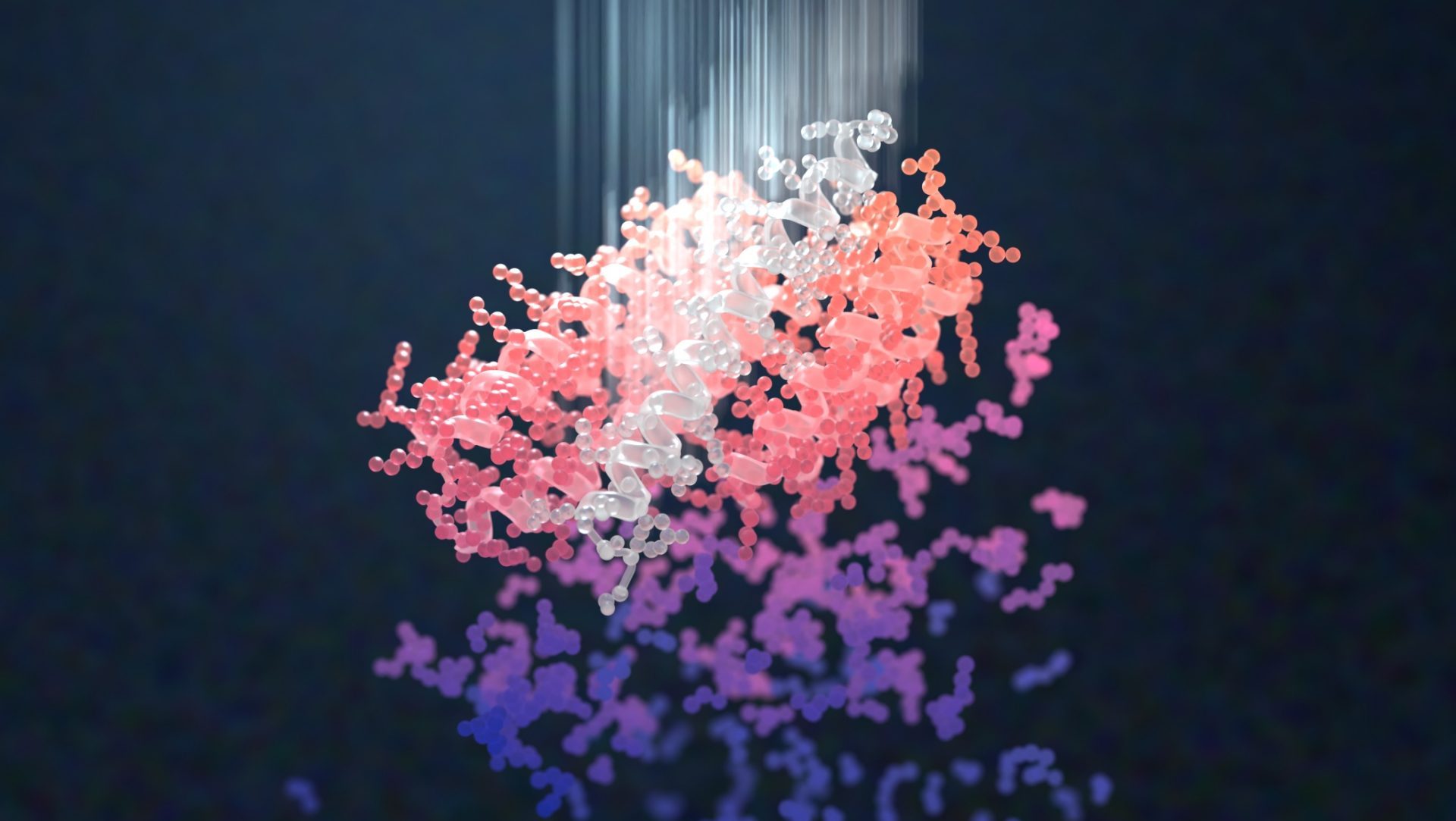
AI generates proteins with exceptional binding strengths
This advance could allow scientists to create cheaper alternatives to antibodies for disease detection and treatment. This week we report in Nature an AI-enabled advance in biotechnology with implications for drug development, disease detection, and environmental monitoring. Using a combination of traditional and deep learning based molecular design approaches, we’ve created proteins that bind with…
-

A new path to carbon storage
Our research shows that custom proteins can drive the growth of limestone-like minerals, a breakthrough that may one day help remove excess carbon from the environment.
-

AstraZeneca to buy Icosavax for $1.1B
Today we learned that Icosavax, a Seattle-based vaccine design company born from innovative research conducted here at the Institute for Protein Design, will be acquired by AstraZeneca in a deal worth up to $1.1 billion. “This is a significant moment for the UW School of Medicine, showcasing how fundamental research can lead to groundbreaking technologies…
-
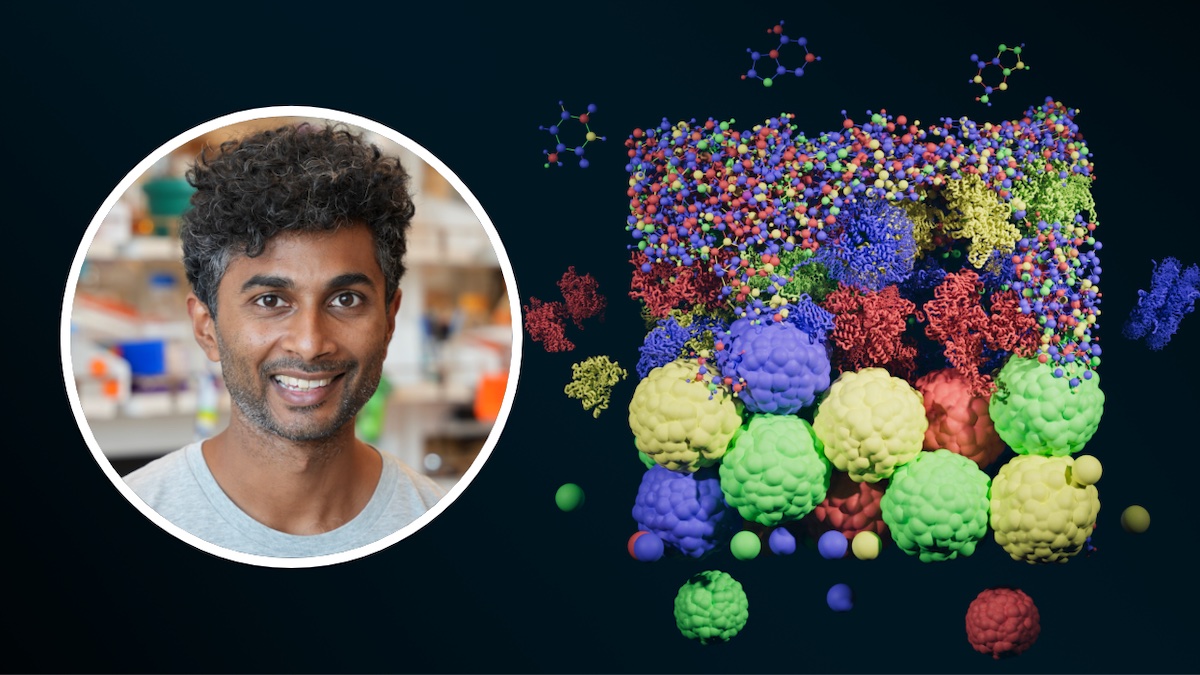
Introducing the Srivatsan Lab
We’re excited to announce a new partnership: the Srivatsan Lab has been named an Affiliate Lab of the Institute for Protein Design. This new lab is at the forefront of leveraging protein design and molecular sequencing to uncover the intricate dance between cells and the genes that guide their function. Under the leadership of Sanjay…
-

Lynda Stuart Joins CEPI’s Scientific Advisory Committee
We are proud to announce that our Executive Director, Lynda Stuart, MD, PhD, has been appointed to the Scientific Advisory Committee (SAC) of the Coalition for Epidemic Preparedness Innovations (CEPI). CEPI, a key player in global health initiatives, has expanded its SAC with nine new experts, including Dr. Stuart, to steer its innovative endeavors in…
-
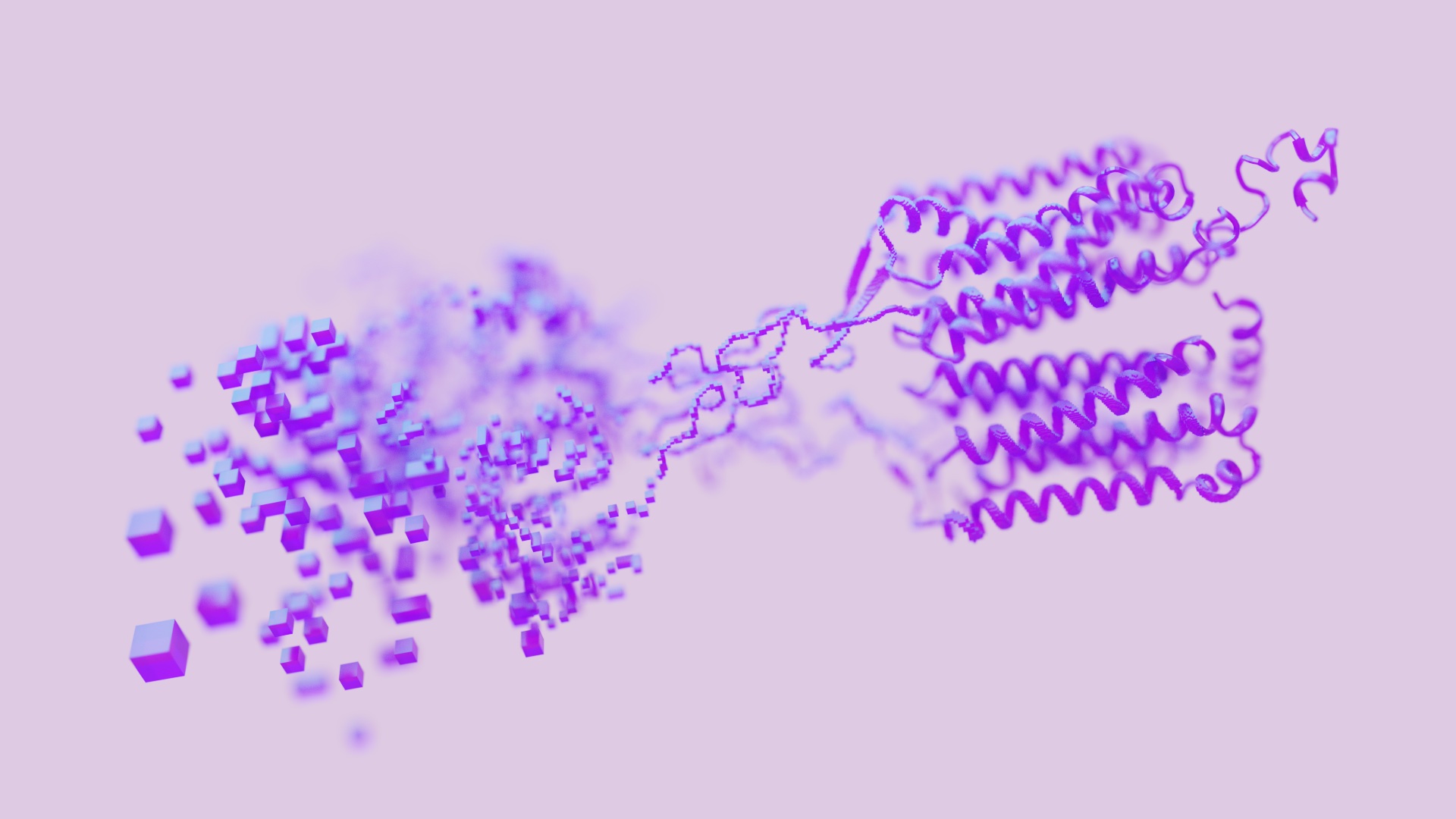
Results from our summit on responsible AI
Convened on October 25, the meeting explored how to responsibly develop software for creating new proteins. The event included leading academics from around the world and representatives from several industry, philanthropic, and government organizations.
-
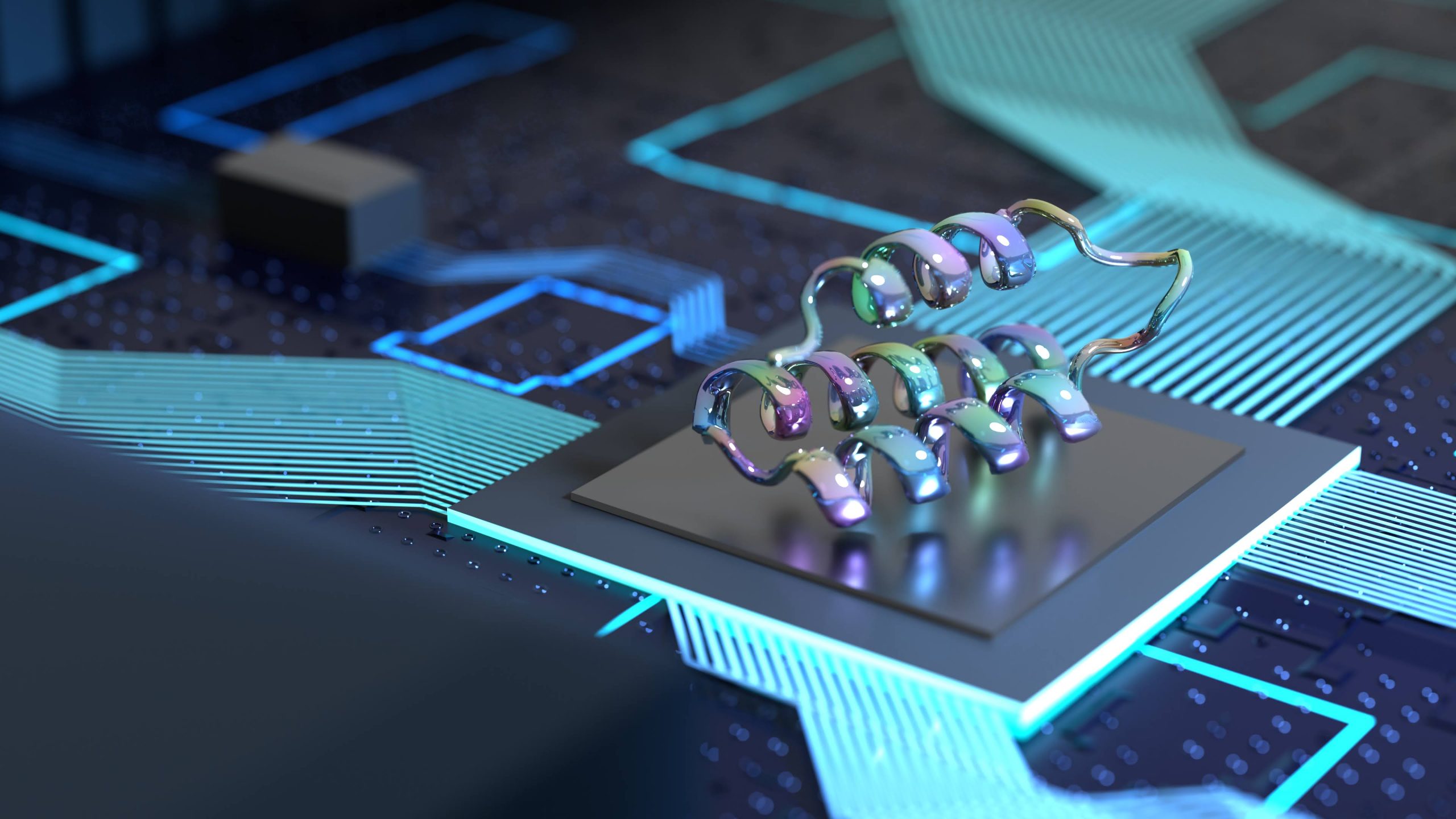
Introducing All-Atom versions of RoseTTAFold and RFdiffusion
Recent deep-learning breakthroughs allow us to look beyond just amino acids, expanding the types of proteins that can be modeled and designed using RoseTTAFold and RFdiffusion.
-
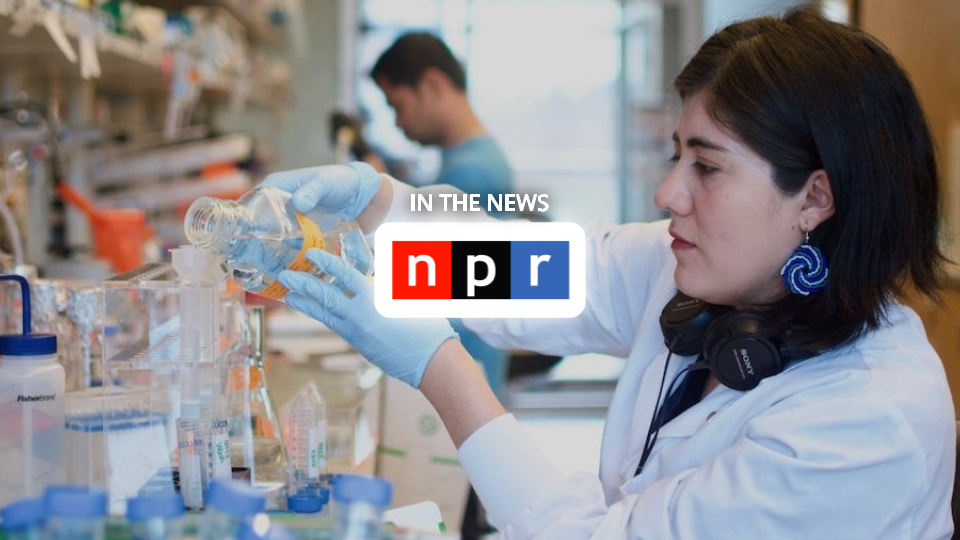
NPR: “Scientists are using AI to speed up discoveries”
NPR senior editor and correspondent Geoff Blumfiel recently visited our labs as part of his coverage of how artificial intelligence is accelerating scientific research.
-

Derrick Hicks receives WRF translational funding
The $250,000 grant will enable Hicks and colleagues to compare novel technology with established approaches to treating a range of cancers.
-

High schoolers try protein design at UW’s Summer STEM Camp
Several members of our Institute recently spent a day with 60 high school students as part of the UW’s STEM camp at W.F. West High School in Chehalis, Washington. Our goal was simple: we wanted to show students that science is more than just a subject in school—it’s a fascinating line of work that touches…
-
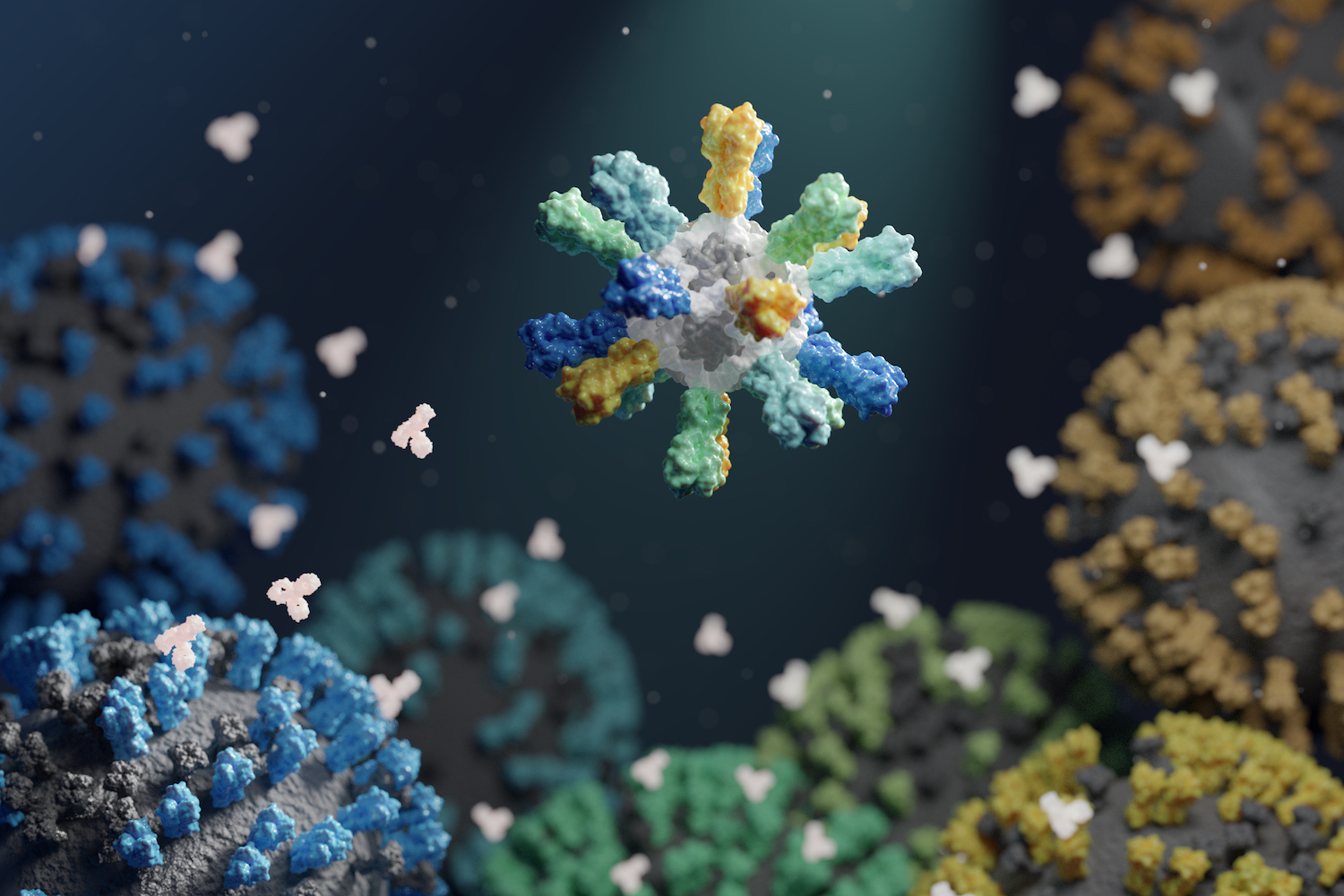
NIH highlights the King Lab’s universal flu vaccine research
In a quest to thwart future pandemics, the King Lab has made significant strides toward the development of universal vaccines, as recently noted by the National Institutes of Health. Traditional vaccines—while crucial—only target certain strains of a given disease. Universal vaccines, on the other hand, are meant to train the immune system to combat all…
-
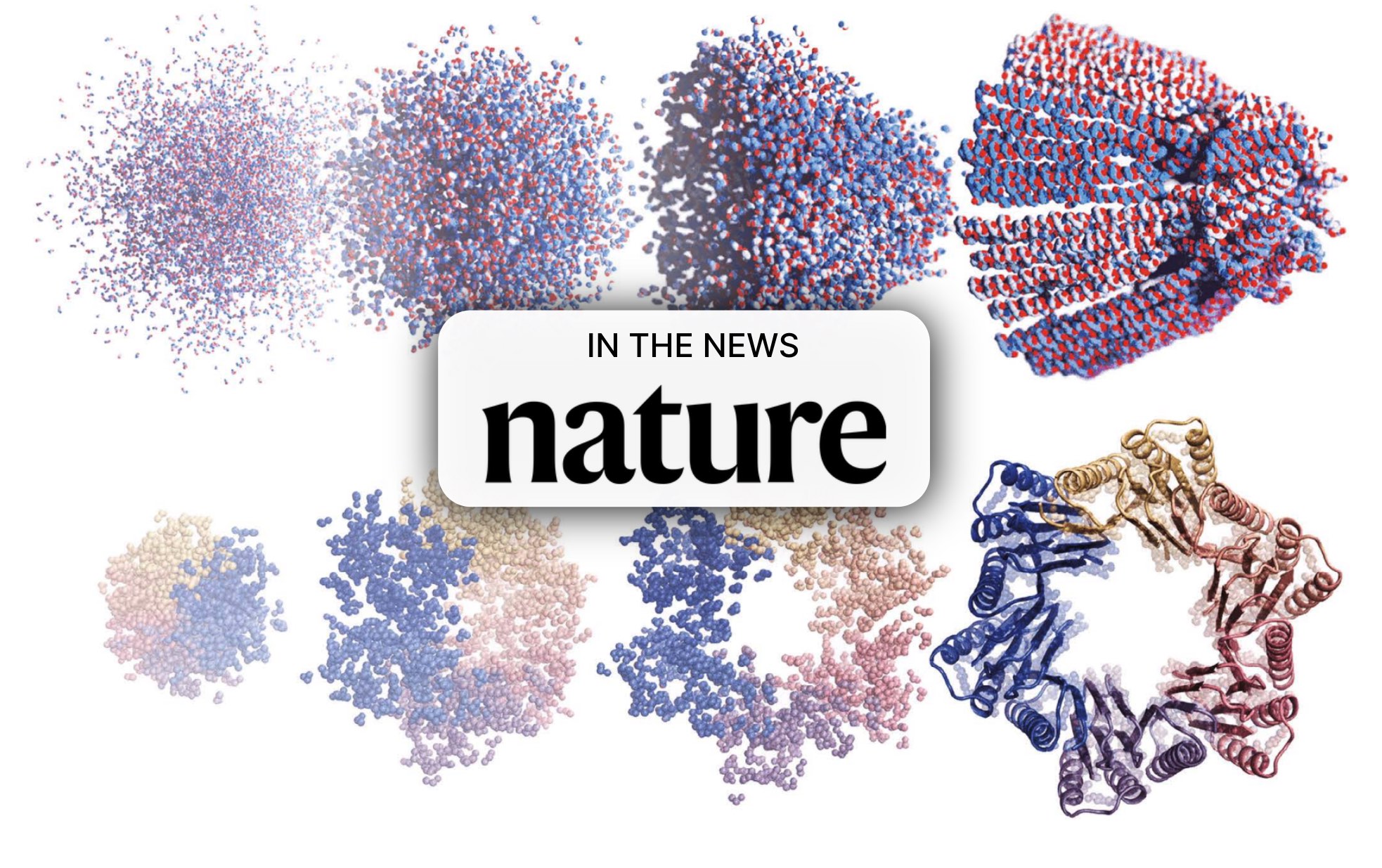
Nature: “AI tools are designing entirely new proteins that could transform medicine”
RFdiffusion was published in Nature this week. The journal reports on how it and other generative algorithms are being used to create custom biomolecules in seconds.
-
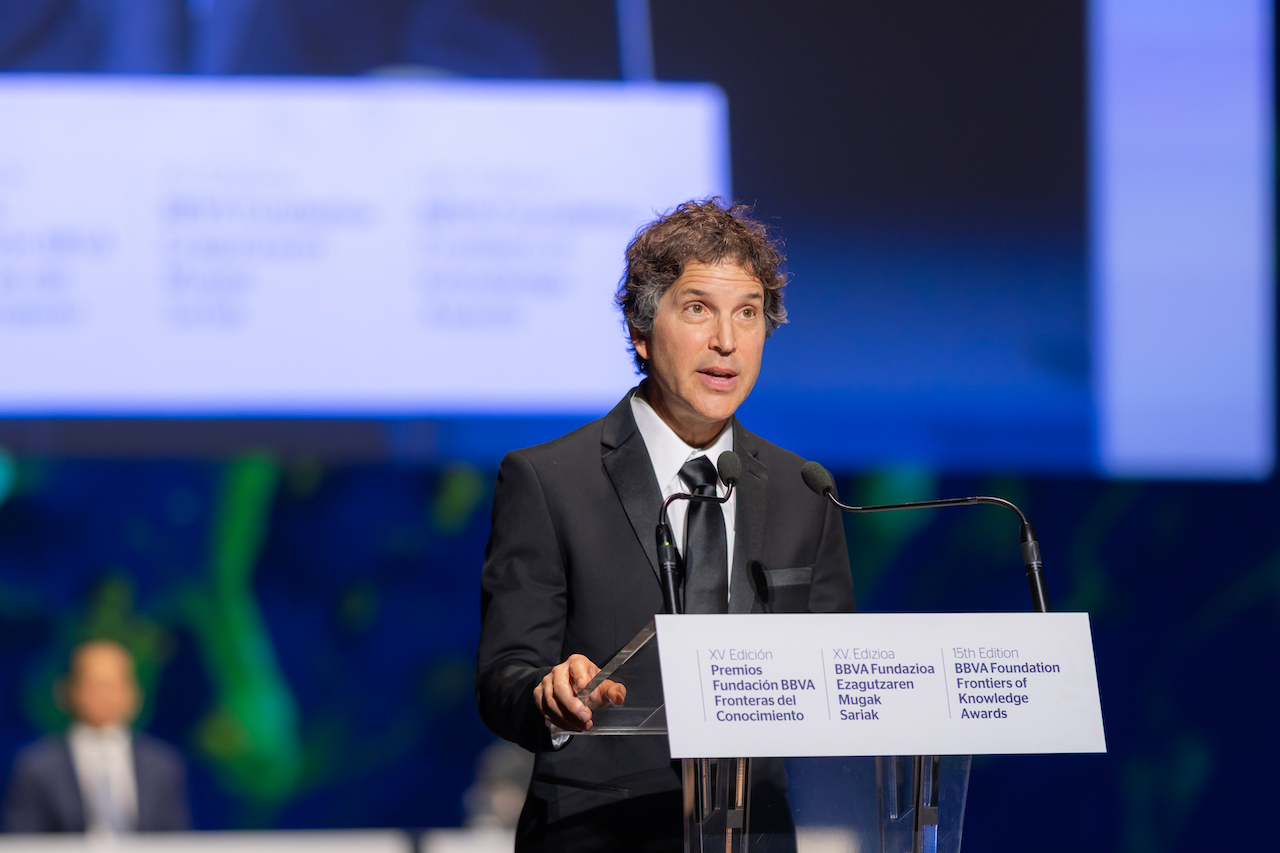
David Baker receives Frontiers of Knowledge Award in Spain
From the BBVA Foundation: From El Mundo: Vaccines against the coronavirus or malaria, drugs against cancer without side effects… With artificial intelligence as an ally, the biochemist from the University of Washington, winner of the Fronteras FBBVA award, develops proteins on demand to create solutions to medical and environmental problems Lea la historia completa en…
-

Lynda Stuart appointed Executive Director of the Institute for Protein Design
We’re pleased to announce that Lynda Stuart, MD, PhD, will serve as Executive Director of the Institute for Protein Design starting May 1. She is an accomplished immunologist and former Deputy Director at the Bill & Melinda Gates Foundation. Dr. Lynda Stuart is a physician, scientist, and advocate for healthcare as a human right with…
-

Undergrad researcher Hannah Han is in the Husky 100
The University of Washington today announced that IPD Undergraduate Researcher Hannah Han is among the 2023 Husky 100. Each year, the Husky 100 recognizes 100 undergraduate and graduate students from the UW Bothell, Seattle, and Tacoma campuses in all areas of study who are making the most of their time at the University of Washington.…
-
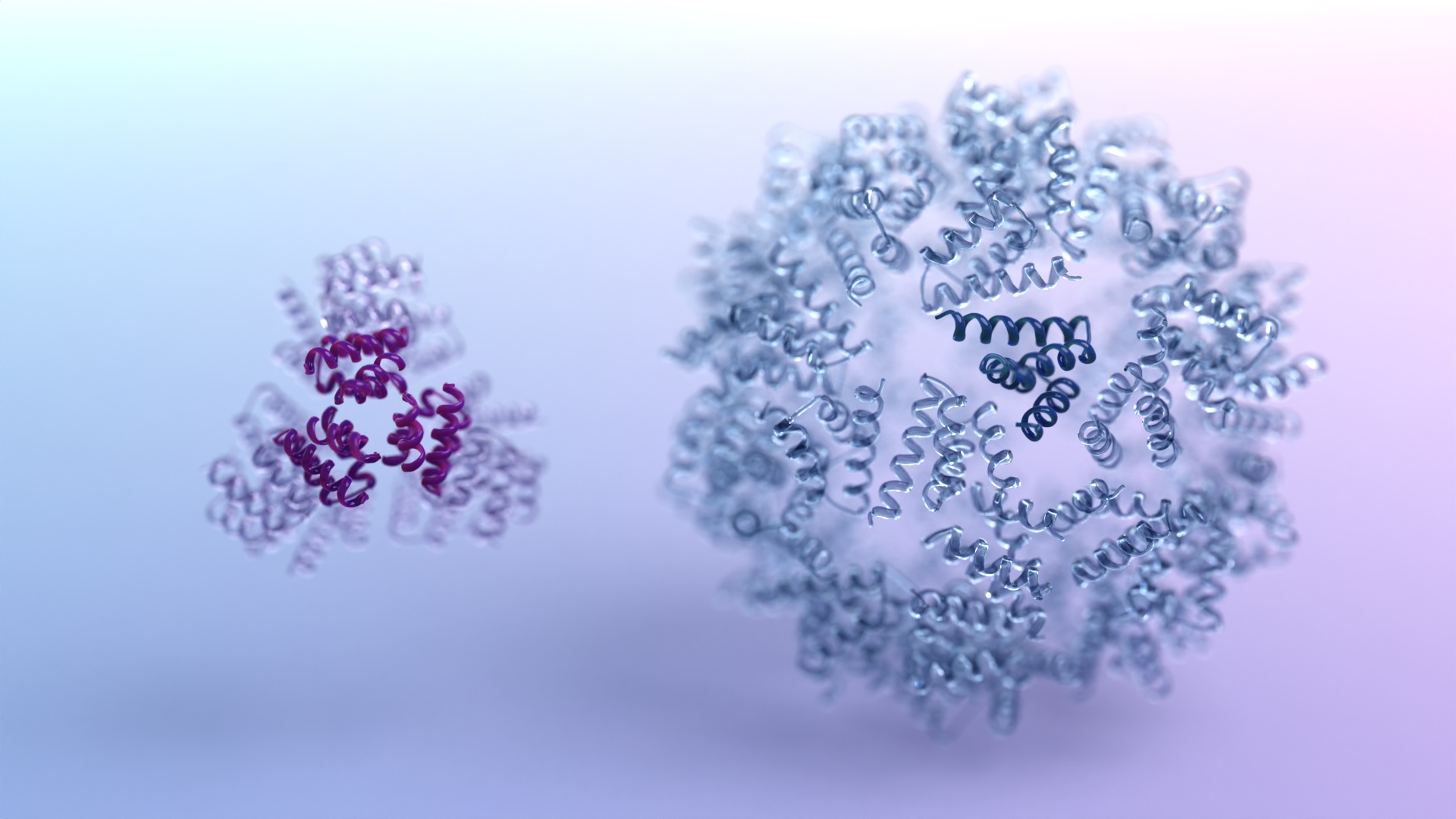
Top-down design of protein architectures with reinforcement learning
Today we report in Science [PDF] the successful application of reinforcement learning to a challenge in protein design. This research is a milestone in the use of artificial intelligence for science, and the potential applications are vast, from developing more effective cancer treatments to new biodegradable textiles. A team led by scientists in the Baker…
-

C&EN: “Generative AI is dreaming up new proteins”
Chemical & Engineering News reports that it’s time for chatbots and image generation to move over. AI-powered protein design is having a moment.
-
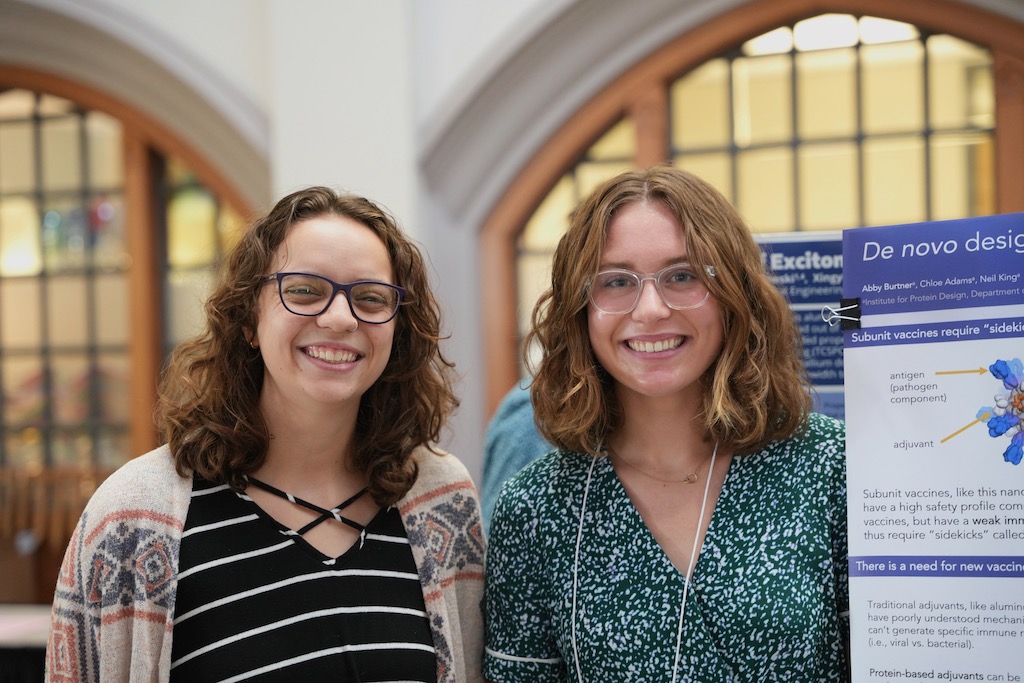
Abigail Burtner named a UW Goldwater Scholar
Five University of Washington undergraduates have been honored as Goldwater Scholars by the Goldwater Foundation, marking 2023 as the first time five students from the UW were named in a single year. The Goldwater Foundation awards undergraduate scholarships to students who show exceptional academic promise pursuing research careers in the natural sciences, mathematics and engineering. The…
-

Design of binders for disordered targets
Today we report in Nature the design of proteins that recognize and bind to the so-called “intrinsically disordered regions” of proteins and peptides. The body produces such disordered molecules naturally, but many have been linked to health disorders, including myeloma and other cancers. “Disordered proteins play important roles in biology. By designing new proteins that…
-
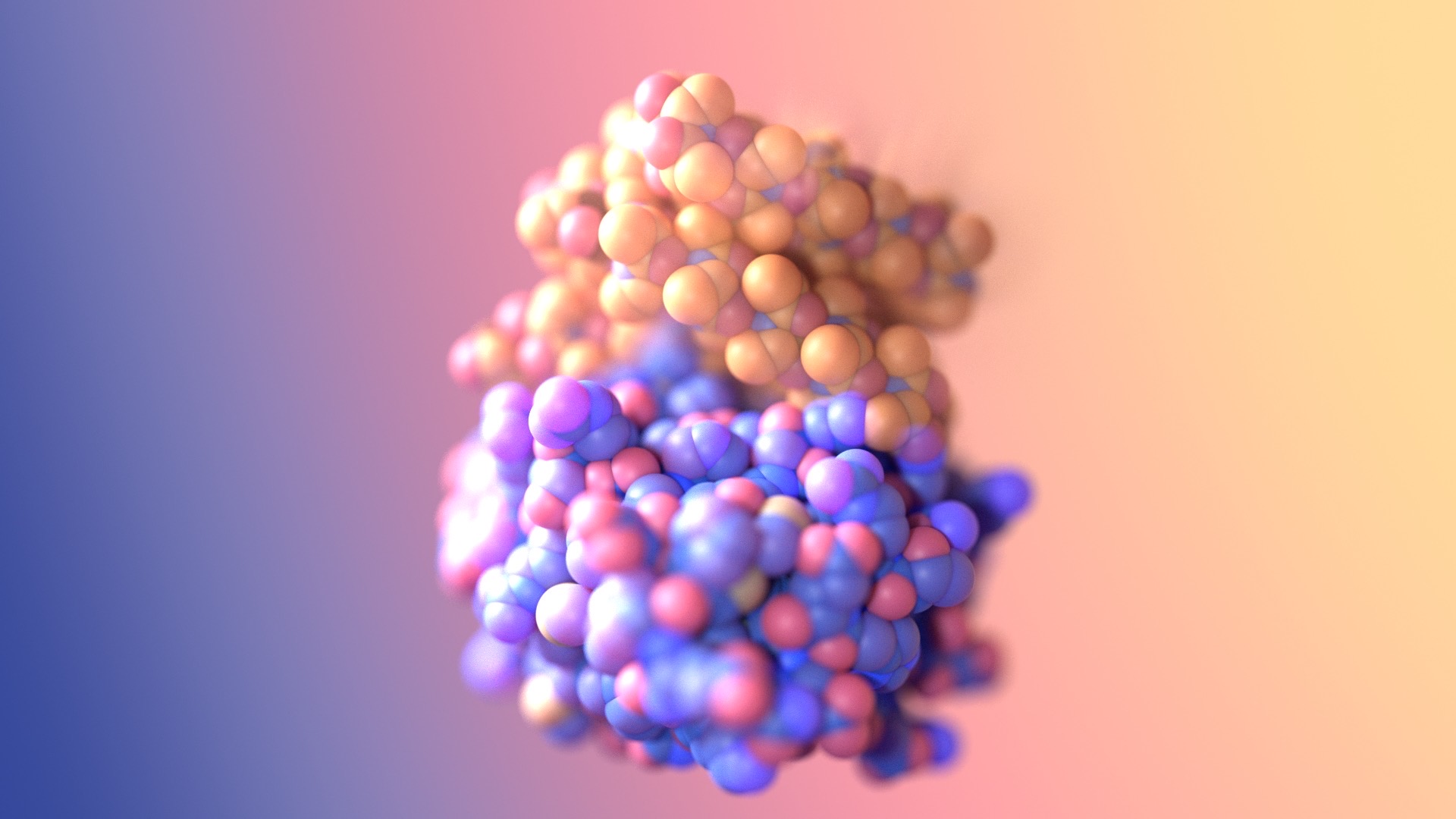
RFdiffusion now free and open source
Today we are making RFdiffusion, our artificial intelligence (AI) program that can generate novel proteins with potential applications in medicine, vaccines, and advanced materials, free for both non-profit and for-profit use under a governed license. The software, which has been tested in our labs, is much faster and more capable than prior protein design tools.…
-
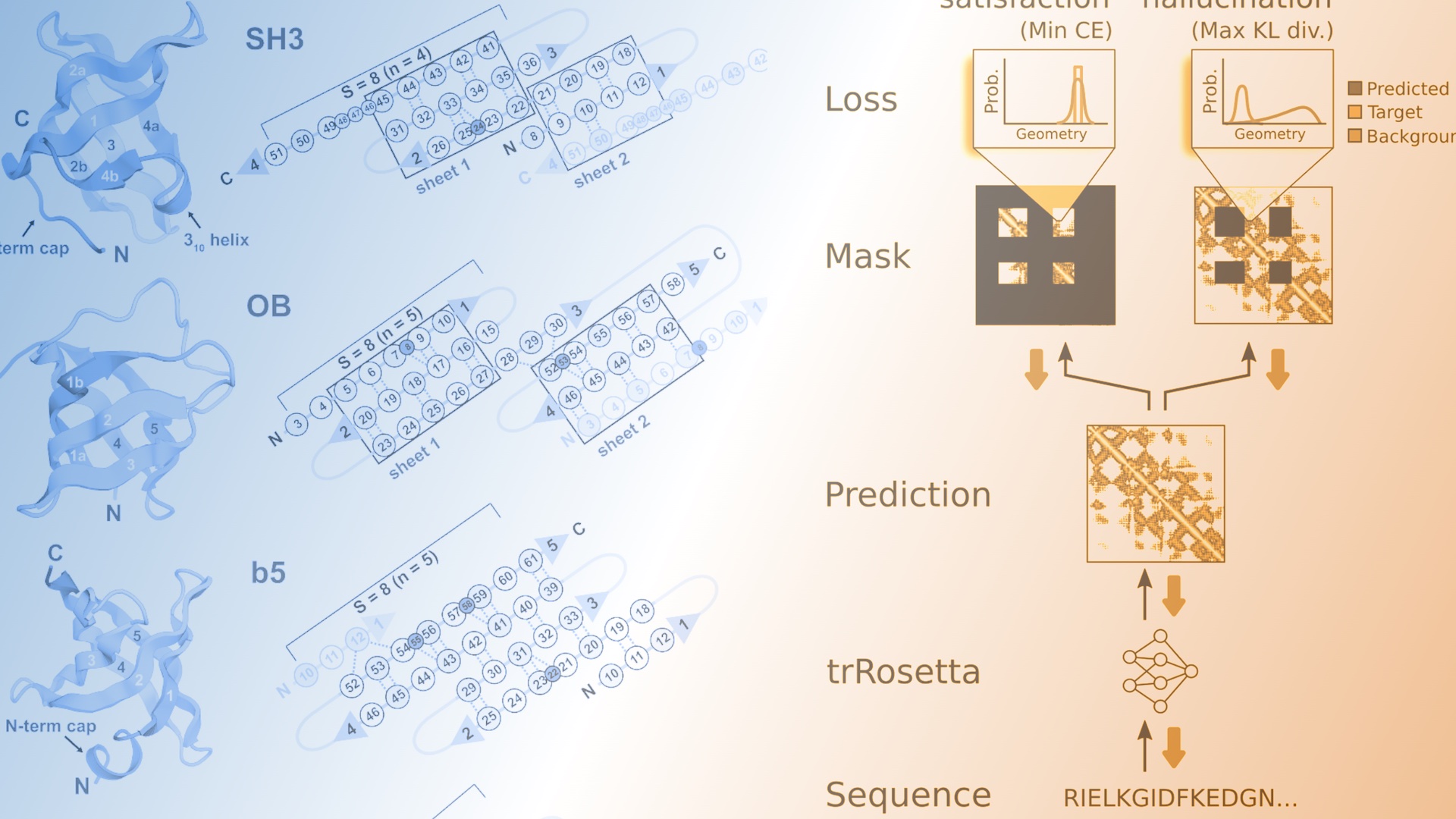
De novo design of small beta barrel proteins
The de novo design of small proteins with beta-barrel topologies has been a challenge for computational design due to the complexity inherent in these folds. In a new study appearing in PNAS, a team led by Baker Lab research scientist David E. Kim describes the successful design and characterization of four different classes of small…
-
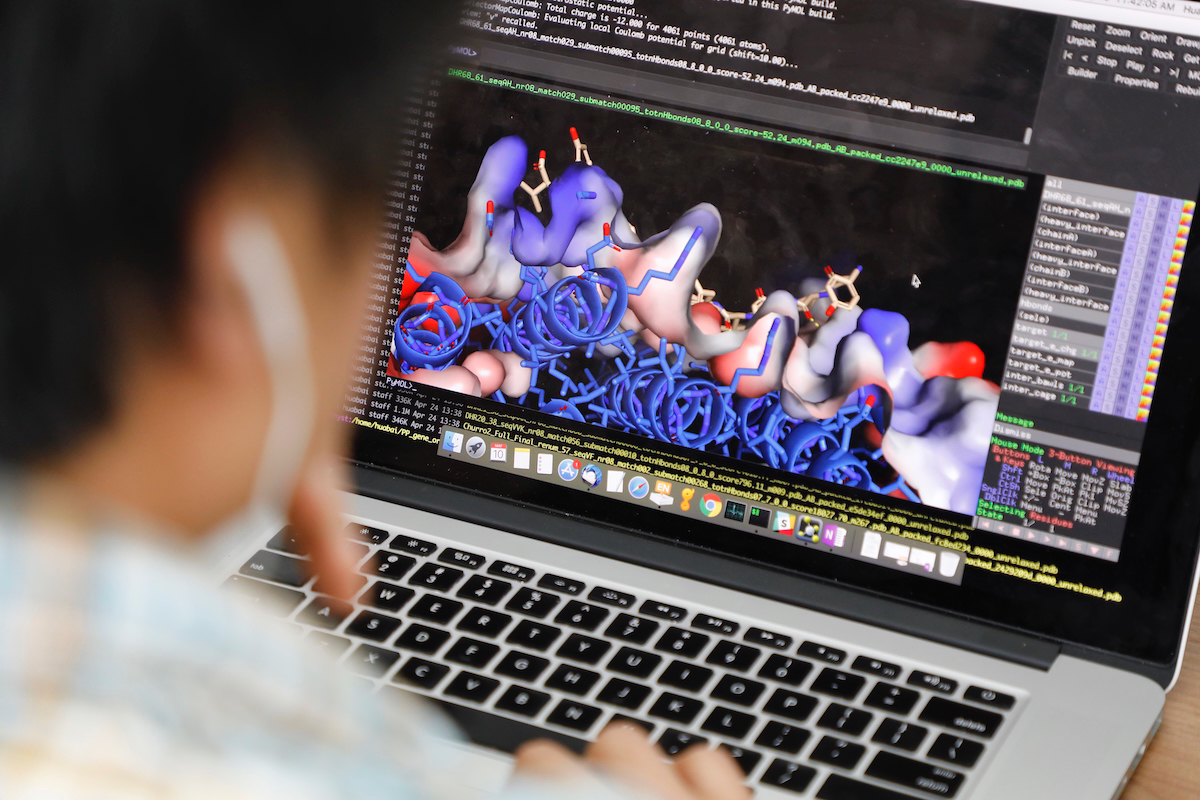
Degreaser: Improving protein secretion
King Lab postdoctoral scholars John Wang and Alena Khmelinskaia have developed a new tool for identifying and removing hidden transmembrane sequences that hinder protein secretion.
-
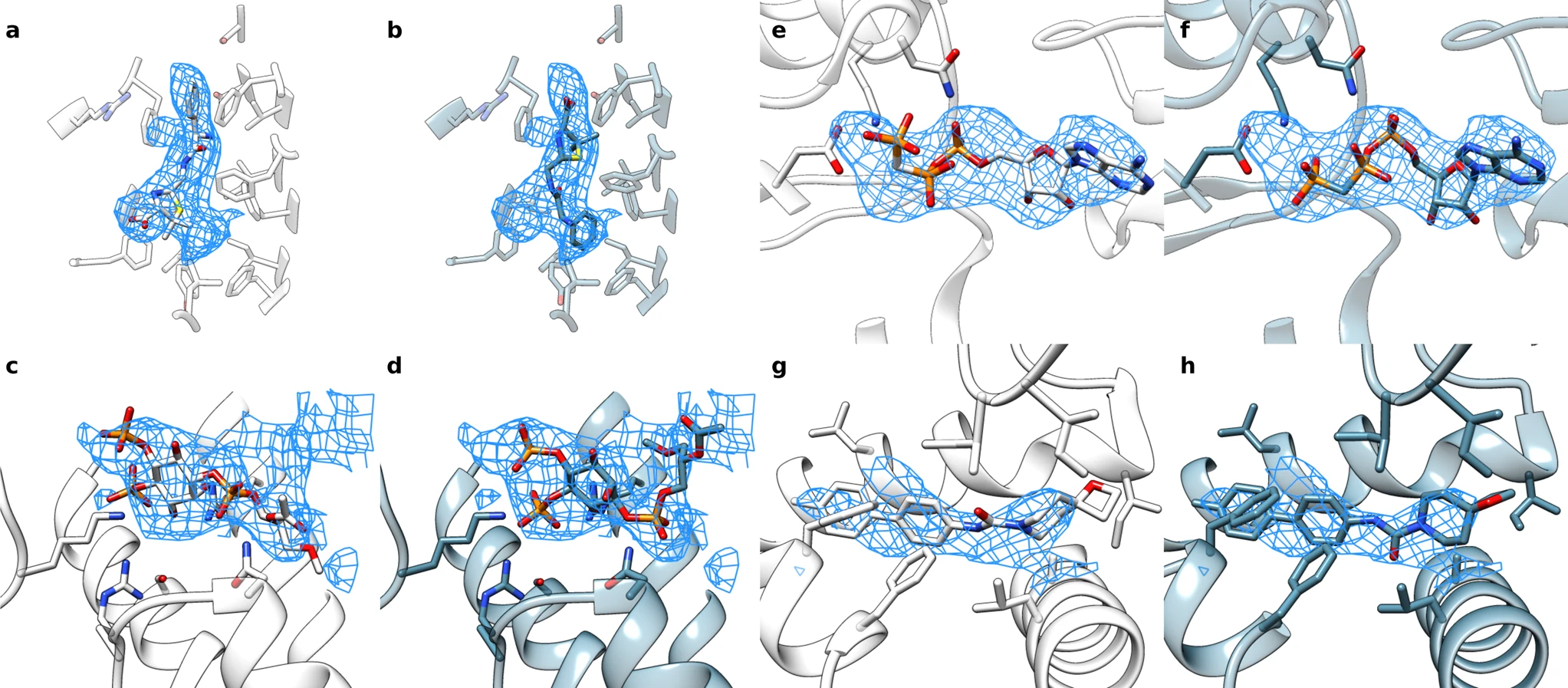
EMERALD: Automatically locate ligands in cyroEM maps
Under ideal conditions, cryo-electron microscopy can be used to determine protein structures at near-atomic resolution. But conditions are not always perfect. To help researchers make use of medium-resolution cryo-electron density maps, scientists in the DiMaio Lab have developed EMERALD, which is a new software tool that can accurately and automatically produce deposition-ready small molecule models…
-

Lazarovits and Ueda receive WRF translational funding
Washington Research Foundation (WRF) has awarded a $498,804 technology commercialization grant to Institute for Protein Design researchers Drs. James Lazarovits and George Ueda. The funding will enable Lazarovits and Ueda to further develop their “plug and play” Antibody Cage (AbC) Platform, which converts antibodies into new structures that uniquely bind multiple targets to improve treatment…
-

Machine learning generates custom enzymes
Today we report in Nature the computational design of highly efficient enzymes unlike any found in nature. Laboratory testing confirms that the new light-emitting enzymes can recognize specific chemical substrates and catalyze the emission of photons very efficiently.
-
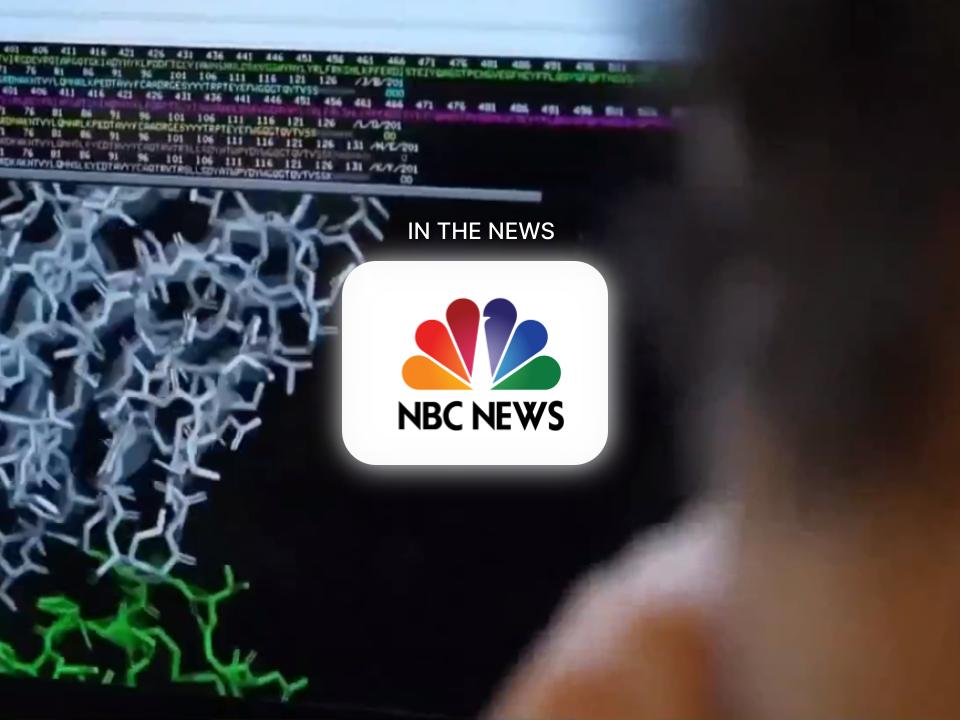
NBC: “Scientists use new A.I. tech to fight diseases”
NBC reports on how our scientists are harnessing artificial intelligence to improve how proteins for medicines and vaccines are developed.
-
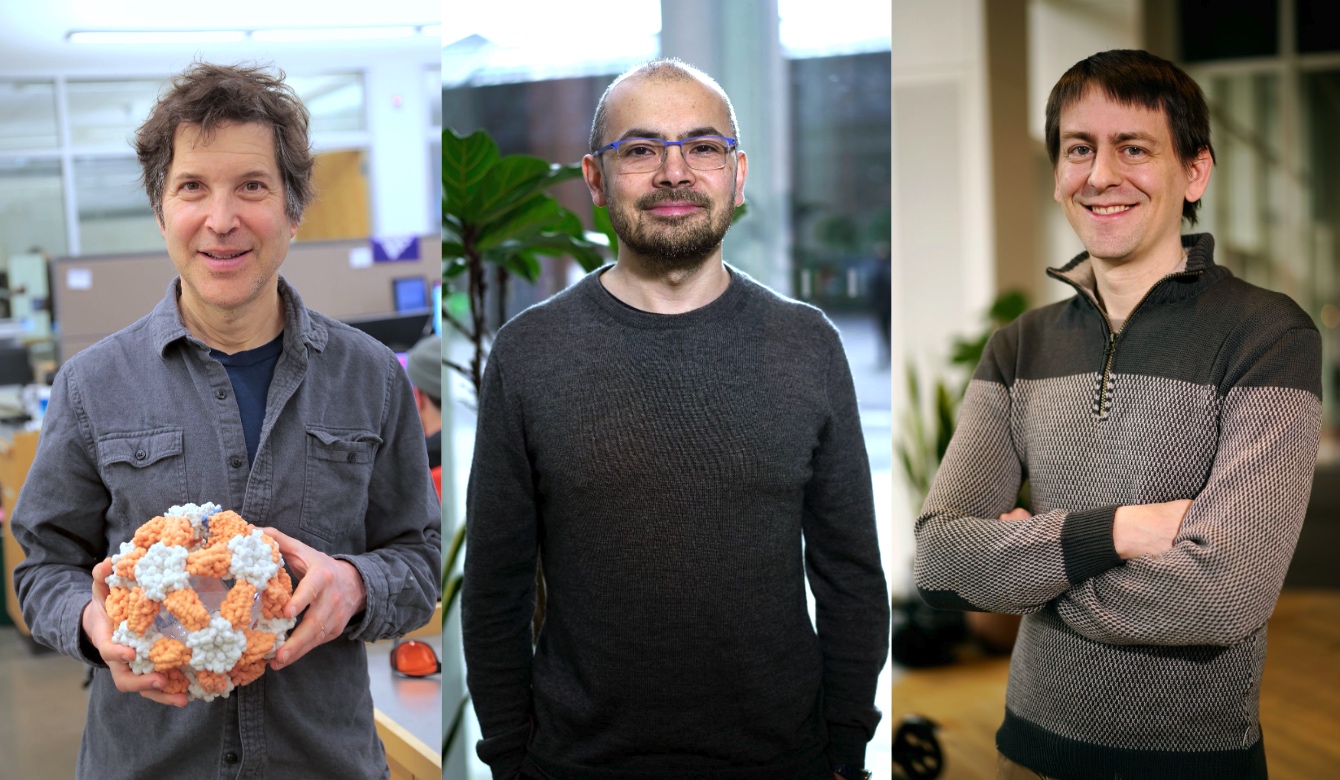
Frontiers of Knowledge Award goes to David Baker, Demis Hassabis and John Jumper
The 15th BBVA Foundation Frontiers of Knowledge Award in Biology and Biomedicine has gone to David Baker, Demis Hassabis and John Jumper “for their contributions to the use of artificial intelligence for the accurate prediction of the three-dimensional structure of proteins.” From the BBVA Foundation: Baker – a Professor of Biochemistry at the University of…
-
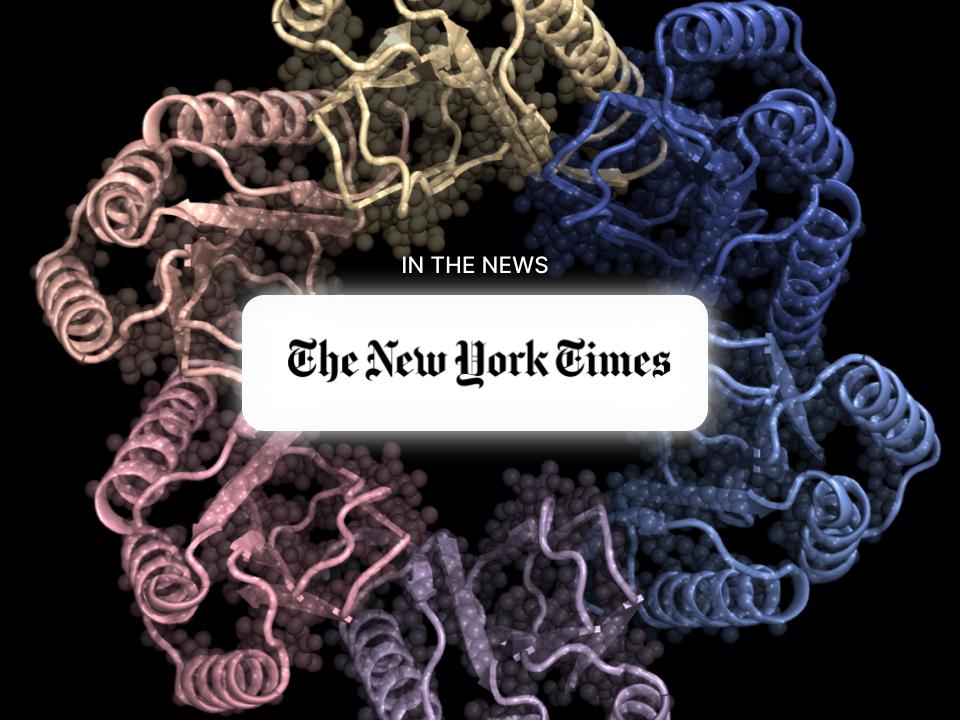
NYT: “A.I. Turns Its Artistry to Creating New Human Proteins”
The New York TImes has reported on how, Inspired by digital image generators like DALL-E, our scientists are building artificial intelligences that can fight cancer, flu and COVID-19.
-
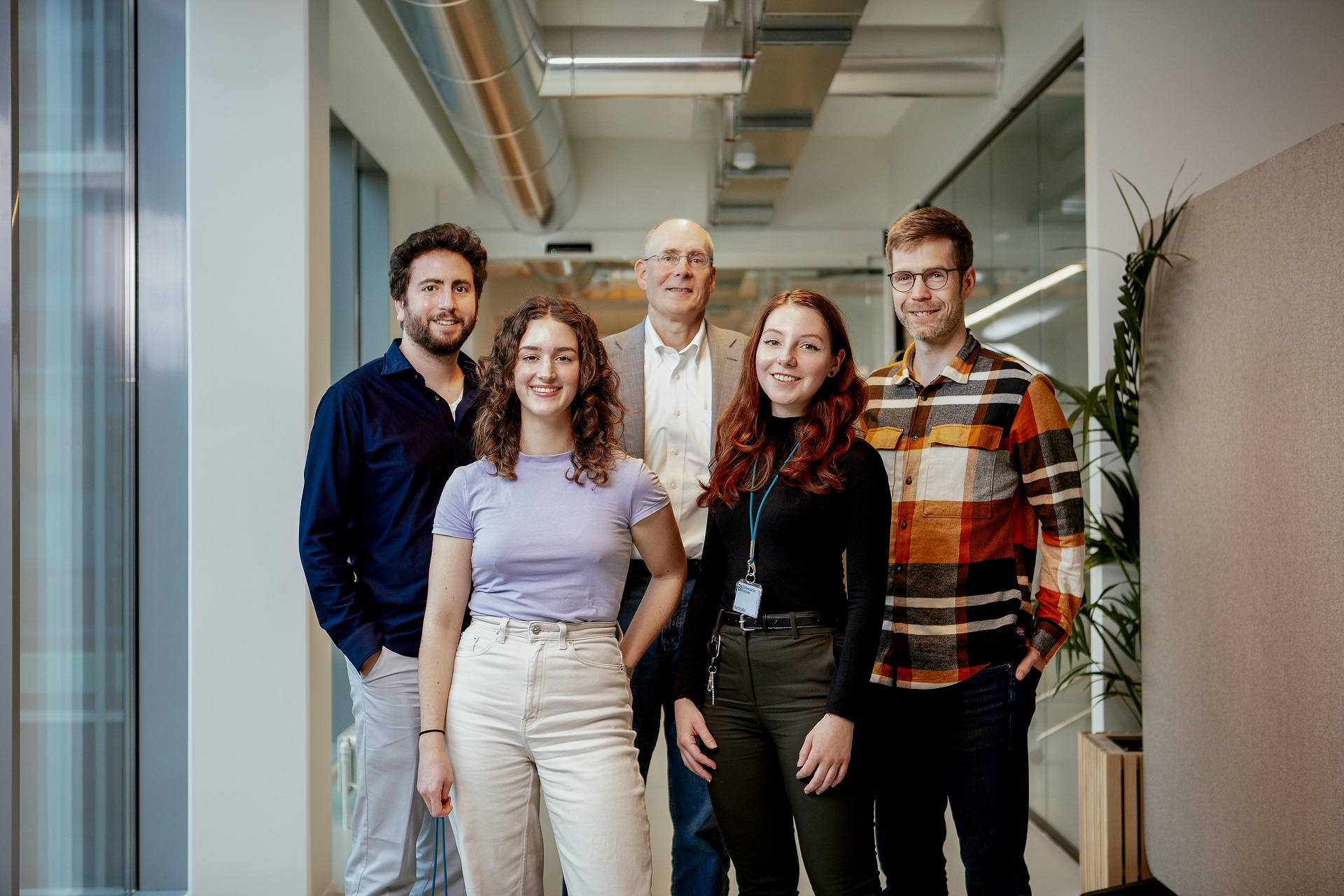
Establishing our first international translational research project
From our partners at the BioInnovation Institute: BioInnovation Institute (BII), an international enterprise foundation with a non-profit objective incubating and accelerating world-class life science research, announces today that it has accepted a new project into its Bio Studio program. Based on recent breakthroughs in Artificial Intelligence (AI) and protein design, the project is creating a…
